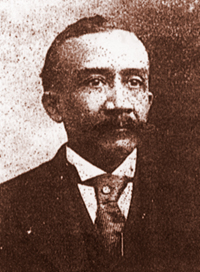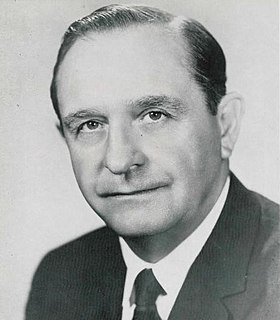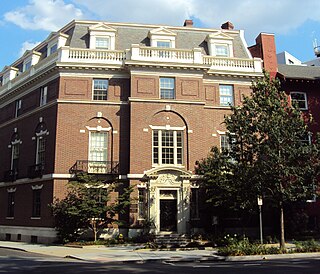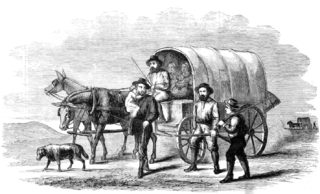 W
WThe history of the United States was preceded by the arrival of Native Americans in North America around 15,000 BC. Numerous indigenous cultures formed, and many disappeared in the 16th century. The arrival of Christopher Columbus in 1492 started the European colonization of the Americas. Most colonies were formed after 1600, and the United States was the first nation whose most distant origins are fully recorded. By the 1760s, the thirteen British colonies contained 2.5 million people and were established along the Atlantic Coast east of the Appalachian Mountains. After defeating France, the British government imposed a series of taxes, including the Stamp Act of 1765, rejecting the colonists' constitutional argument that new taxes needed their approval. Resistance to these taxes, especially the Boston Tea Party in 1773, led to Parliament issuing punitive laws designed to end self-government. Armed conflict began in Massachusetts in 1775.
 W
WThe Admission to the Union Clause of the United States Constitution, also called the New States Clause, found at Article IV, Section 3, Clause 1, authorizes the U.S. Congress to admit new states into the Union. The Constitution went into effect on June 21, 1788 in the nine states that had ratified it, and the federal government began operations under it on March 4, 1789. Since then, 37 states have been admitted into the Union. Each new state has been admitted on an equal footing with those already in existence.
 W
WAfghanistanism is a term, first recorded in the United States, for the practice of concentrating on problems in distant parts of the world while ignoring controversial local issues. In other contexts, the term has referred to "hopelessly arcane and irrelevant scholarship", "fascination with exotic, faraway lands", or "Railing and shaking your fist at an unseen foe who is quite unaware of your existence, much less your fury".
 W
WAmerica's Book of Secrets is a documentary series about mysterious or little known aspects of U.S. history, theories about secrets that are possibly being hidden from the public, and hidden sources of the social issues that face the country. Episodes deal with topics such as government coverups, organized crime gangs, the War on Drugs, white supremacy movements, cults, presidential assassinations and coup attempts, terrorist attacks, extraterrestrials, Bigfoot, government surveillance, covert military operations, secret societies and American oligarchs.
 W
WThe American gentry were rich landowning members of the American upper class in the colonial South.
 W
WAmerican philosophy is the activity, corpus, and tradition of philosophers affiliated with the United States. The Internet Encyclopedia of Philosophy notes that while it lacks a "core of defining features, American Philosophy can nevertheless be seen as both reflecting and shaping collective American identity over the history of the nation."
 W
WThe Army and Navy Union of the United States of America is the oldest veterans' organization in America. It was conceived in 1886 and the concept came from nineteenth-century war fighting groups that had the same common interests. Its name changed over time from just a soldier's union to take account for all sailors and soldiers in all branches of the United States Armed Forces.
 W
WThe California Republic, or Bear Flag Republic, was an unrecognized breakaway state from Mexico, that for 25 days in 1846 militarily controlled an area north of San Francisco, in and around what is now Sonoma County in California.
 W
WThe Chicken Sandwich Wars is a marketing trend in the history of fast food in the United States during which a great number of American quick serve restaurant chains introduced fried chicken sandwiches to their menus. The phenomenon began in 2019 and, as of 2021, is still ongoing.
 W
WThe Code Girls or World War II Code Girls were a group of more than 10,000 women who served as cryptographers and cryptanalysts for the United States Military during World War II.
 W
WColored or coloured, is an ethnic descriptor historically used in the United States and countries. In many of these places, it may now be considered an ethnic slur, though has taken on a special meaning in Southern Africa. Historically, the term denoted non-white individuals generally.
 W
WColumbia Rediviva was a privately owned American ship under the command of John Kendrick, along with Captain Robert Gray, best known for going to the Pacific Northwest for the maritime fur trade. "Rediviva" was added to her name upon a rebuilding in 1787. Since Columbia was privately owned, she did not carry the prefix designation "USS".
 W
WIn the 1870s, many activists in the United States were frustrated by the decision of President Ulysses S. Grant to take a neutral approach towards the ongoing revolution in Cuba that sought to overthrow slavery in the Spanish territory. Many prominent individuals wanted to see the end of Cuban slavery and the triumph of the insurgents along with official recognition from the United States that the insurgents were legitimate belligerents. Motivated by this desire, the Cuban Anti-Slavery Committee, occasionally referred to as the Cuban Anti-Slavery Society, first convened in December 1872 at the Cooper Institute in New York. Samuel R. Scottron led the Committee and organized the event, while the Reverend Henry Highland Garnet served as the Committee's secretary and keynote speaker.
 W
WThe Eighth was a federal holiday in the United States from 1828 until 1861 commemorating the U.S. victory in the Battle of New Orleans on January 8, 1815.
 W
WEmigration from the United States is the process where individuals from the United States move to live in other countries, creating an American diaspora. The process is the reverse of the immigration to the United States. The United States does not keep track of emigration, and counts of Americans abroad are thus only available based on statistics kept by the destination countries.
 W
WOrval Eugene Faubus was an American politician who served as the 36th Governor of Arkansas from 1955 to 1967, as a member of the Democratic Party.
 W
WThe institution of slavery in North America existed from the earliest years of the colonial history of the United States until 1865 when the Thirteenth Amendment permanently abolished slavery throughout the entire United States. It was also abolished among the sovereign Indian tribes in Indian Territory by new peace treaties which the US required after the war.
 W
WGalveztown, or Villa de Gálvez, is a ghost town located at the confluence of Bayou Manchac and the Amite River in Ascension Parish, Louisiana. Galveztown was established in 1778 with the settlement of Canary Islanders colonists and Anglo-Americans fleeing the American Revolutionary War. Due to deplorable conditions and disease, the settlement was eventually abandoned and many residents fled to Spanish Town in 1806. Some former residents remained in the area and established the community of Gálvez, Louisiana during the first half of the nineteenth century.
 W
WGayola was a type of bribe used by American police departments against gay bars in the post-war era. Liquor laws prevented bars from knowingly selling alcoholic beverages to gay patrons, so police departments commonly demanded payoffs from gay bar owners as a way to prevent shutdowns and raids.
 W
WThe German Historical Institute Washington DC is an institute of historical study based in Washington, D.C. It has been part of the Max Weber Stiftung: Deutsche Geisteswissenschaftliche Institute im Ausland since 2002. The director is Simone Lässig.
 W
WAmerican Canadians are Canadians of American descent. The term is most often used to refer to Canadians who migrated from or have ancestry from the United States.
 W
WIndependence Day is a federal holiday in the United States commemorating the Declaration of Independence of the United States, on July 4, 1776. The Continental Congress declared that the thirteen American colonies were no longer subject to the monarch of Britain, King George III, and were now united, free, and independent states. The Congress had voted to declare independence two days earlier, on July 2, but it was not declared until July 4.
 W
WA hanging tree or hangman's tree is any tree used to perform executions by hanging, especially in the United States. The term is also used colloquially in all English-speaking countries to refer to any gallows.
 W
WSince 1872 the United States National Park System has grown from a single, public reservation called Yellowstone National Park to include 430 natural, historical, recreational, and cultural areas throughout the United States, its territories, and island possessions. These areas include National Parks, National Monuments, National Memorials, National Military Parks, National Historic Sites, National Parkways, National Recreation Areas, National Seashores, National Scenic Riverways, and National Scenic Trails.
 W
WNazism in the Americas has existed since the 1930s and still exists today. The membership of the earliest groups reflected the sympathies of some German-Americans and German Latin-Americans toward Nazi Germany, embracing the National Socialist spirit in Europe and establishing it within the Americas. Throughout the inter-war period and the outbreak of World War II, American Nazi parties engaged in activities such as sporting Nazi propaganda, storming newspapers, spreading Nazi-sympathetic materials and infiltrating other non-political organizations.
 W
WNenana Valley is an archaeological site in the Yukon-Koyukuk Census Area of Alaska.
 W
WThe Plantations of New England were a series of colonisation efforts by Europeans on the east coast of North America, a land that they called New England.
 W
WThe planter class, known alternatively in the United States as the Southern aristocracy, was a socio-economic caste of Pan-American society that dominated 17th and 18th century agricultural markets. The Atlantic slave trade permitted planters access to inexpensive African slave labor for the planting and harvesting of crops such as tobacco, cotton, indigo, coffee, tea, cocoa, sugar cane, sisal, oil seeds, oil palms, hemp, rubber trees, and fruits. Planters were considered part of the American gentry.
 W
WThe Report on a Plan for the Further Support of Public Credit, is the "valedictory" report issued to the US Congress on January 16, 1795 by the first Secretary of the Treasury, Alexander Hamilton. In addition to defending the fiscal programs that he had imposed thus far and extolling a system of finance that was "prosperous beyond all expectations" the report enumerated existing sources of revenue, outlined the plan for the "Redemption of the public debt" and its accruing interest to stabilize the current system of funding, and proposed amendments to the System of Public Credit that were designed for the complete extinguishment government debt and to "prevent that progressive accumulation of Debt which must ultimately endanger all Government."
 W
WThe Rose–Baley Party was the first European American emigrant wagon train to traverse the 35th parallel route known as Beale's Wagon Road, established by Edward Fitzgerald Beale, from Zuni Pueblo, New Mexico to the Colorado River near present-day Needles, California.
 W
WClaude Ewing Rusk, also known as C. E. Rusk, was an American mountaineer, lawyer, and author from Washington who pioneered routes up Mount Adams, Mount Baker, and Glacier Peak. He also ascended many other peaks in Washington, Oregon, and California.
 W
WIn the United States before 1865, a slave state was a state in which slavery and the slave trade were legal, while a free state was one in which they were not. Between 1812 and 1850, it was considered by the slave states to be politically imperative that the number of free states not exceed the number of slave states, so new states were admitted in slave–free pairs. There were, nonetheless, some slaves in most free states up to the 1840 census, and the Fugitive Slave Act of 1850 specifically stated that a slave did not become free by entering a free state.
 W
WThe history of surveying in the United States included the mapping of large, unknown territories and the layout of the District of Columbia. Several presidents were involved, including George Washington.
 W
WThe temperance movement is a social movement against the consumption of alcoholic beverages. Participants in the movement typically criticize alcohol intoxication or promote complete abstinence from alcohol (teetotalism), and its leaders emphasize alcohol's negative effects on people's health, personalities and family lives. Typically the movement promotes alcohol education and it also demands the passage of new laws against the sale of alcohol, either regulations on the availability of alcohol, or the complete prohibition of it. During the 19th and early 20th centuries, the temperance movement became prominent in many countries, particularly in English-speaking and Scandinavian ones, and it eventually led to national prohibitions in Canada, in Norway and in the United States, as well as provincial prohibition in India. A number of temperance organizations exist that promote temperance and teetotalism as a virtue.
 W
WThe Temperance movement in the United States is a movement to curb the consumption of alcohol. It had a large influence on American politics and American society in the nineteenth and twentieth centuries, culminating in the unsuccessful prohibition of alcohol, through the Eighteenth Amendment to the United States Constitution, from 1920 to 1933. Today, there are organizations that continue to promote the cause of temperance.
 W
WTerritories of the United States on stamps discusses commemorative postal issues devoted to lands that have been ceded to the nation or purchased by treaty in conjunction with both war and peace. Thirteen states have been created from colonial territories, two from independent republics, four from previous states in the Union, and an additional thirty-one from United States territories.